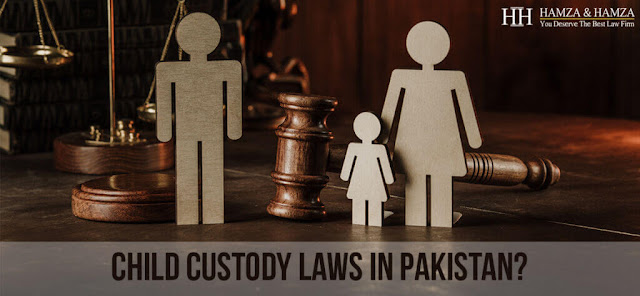Are Child Custody Laws in Pakistan Truly Prioritizing the Child’s Best Interests?
- Get link
- X
- Other Apps
Legal Framework Governing Custody
In Pakistan, child custody matters fall under the Guardians and Wards Act, 1890, which provides the formal legal basis for deciding custody and guardianship. In addition, Islamic principles play a strong role, particularly in cases involving Muslim families. The law differentiates between two legal concepts:
Custody (Hizanat): The physical custody and daily care of the child, usually awarded to the mother for a certain age.
Guardianship (Wilayat): The legal responsibility for making important decisions about the child’s life, typically granted to the father.
These laws are applied through Family Courts established under the Family Courts Act, 1964, which have jurisdiction to decide all matters relating to child custody and visitation rights.
Age and Gender Considerations
Traditionally, custody laws in Pakistan follow Islamic jurisprudence, under which:
Mothers usually retain custody of sons until the age of 7 and daughters until puberty.
After this age, custody may shift to the father unless the court determines that it is not in the child's best interest.
However, courts now increasingly interpret these age-based rules as guidelines rather than strict laws. The overriding factor, especially in recent years, has become the welfare of the child, which is assessed on a case-by-case basis.
What Defines the “Best Interest” of the Child?
The phrase “best interest of the child” is frequently used in custody cases, but what does it actually mean in the Pakistani context? Courts generally evaluate:
The emotional bonding between the child and each parent.
The financial and living conditions of the parent seeking custody.
The moral and ethical upbringing of the child.
The educational opportunities and stability provided by each parent.
The child’s own preference, especially if the child is older and mature enough to express a reasoned opinion.
In many cases, Pakistani courts have shown a willingness to override traditional norms to ensure the child’s emotional, psychological, and educational well-being by Child Custody Laws In Lahore.
Challenges in Enforcement and Gender Bias
Despite the legal provisions, enforcement remains inconsistent. For example:
Non-custodial parents, often fathers, sometimes face difficulties in obtaining court-mandated visitation rights.
Women may face societal pressure or financial hurdles that affect their ability to seek or retain custody.
There are instances where children are used as leverage in disputes between spouses.
Moreover, critics argue that some judgments reflect gender biases rooted in societal norms, rather than a child-centric perspective.
Role of Mediation and Legal Support
Mediation has begun to play a greater role in resolving child custody disputes without prolonged court battles. Mediation allows both parents to focus on creating a co-parenting plan that puts the child’s needs first. Legal professionals, especially those with experience in family law, are crucial in guiding parents through the process and ensuring that court orders reflect long-term child welfare.
Conclusion: A Need for Stronger, Child-Centric Implementation
While the legal framework for child custody in Pakistan includes provisions to safeguard children’s welfare, its effectiveness depends heavily on the interpretation and implementation by the courts. Increased awareness, judicial sensitivity, and access to skilled legal representation can help ensure that custody decisions truly prioritize the best interests of the child.
Hamza & Hamza Law Associates, with their dedicated team of family law experts, are committed to advocating for child-focused legal outcomes. Their deep understanding of both the statutory law and evolving court practices ensures that parents receive not only legal representation but also compassionate guidance through emotionally charged custody matters. For families navigating this difficult terrain, professional legal support can make all the difference.





Comments
Post a Comment